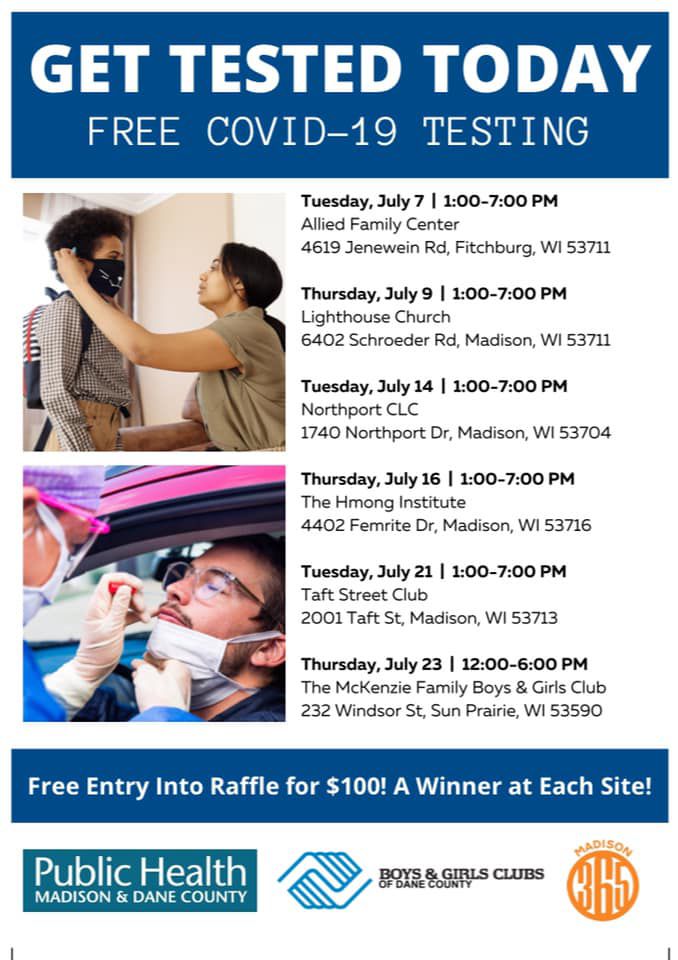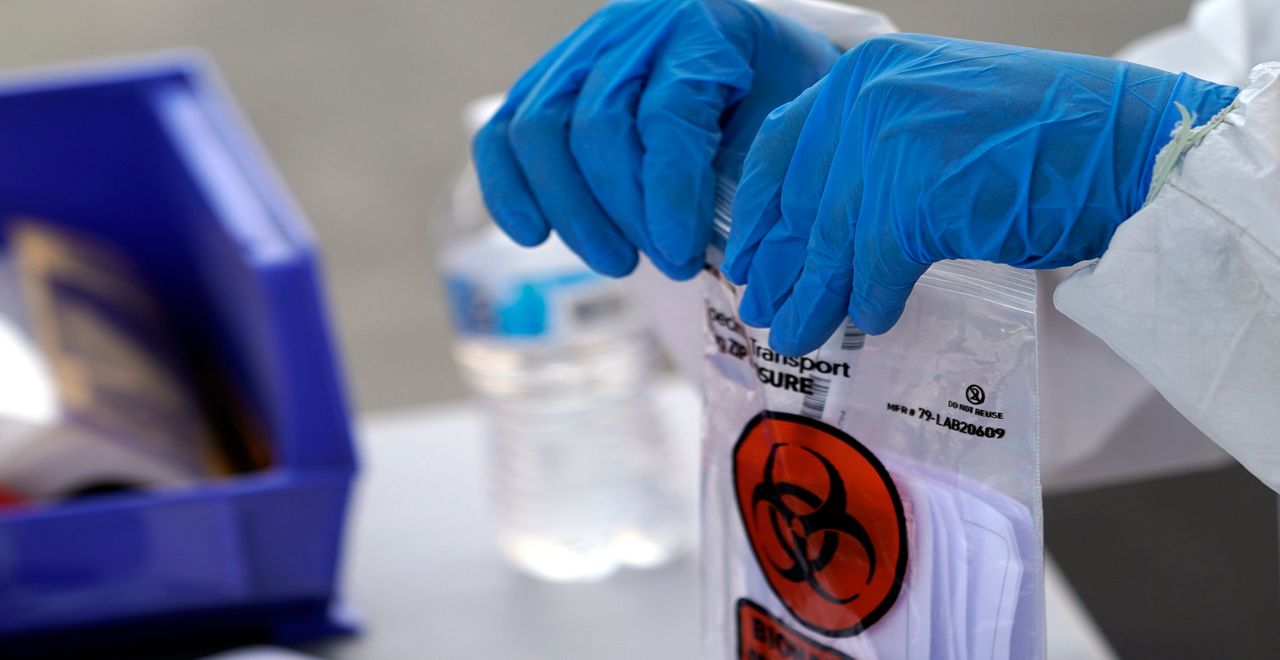MILWAUKEE (SPECTRUM NEWS) — As the coronavirus pandemic keeps affecting minority communities at disproportionate rates, access to COVID-19 testing has been an important matter.
Wisconsin has made efforts on a statewide level to offer free tests to the minority groups that are hit hardest by the pandemic — but local organizations and health care providers are also stepping in to bridge the gap.
Tutankhamun “Coach” Assad, the founder of Madison-based nonprofit The Mellowhood Foundation, says for him, the need to reach out to people of color was obvious.
“When we talk about the pandemic of this virus, coupled against a pandemic of oppression that we're supposed to live in every day, it wasn't hard to figure out,” Assad says.
Last week, the grassroots organization hosted a pop-up testing site at Orchard Ridge United Church of Christ, in partnership with Public Health Madison and Dane County.
Assad says he had heard from community members who had reservations about going to large-scale testing sites run by the National Guard, like the one at the Alliant Energy Center. In the end, he says the Mellowhood Foundation was able to provide 1,400 free tests over four days.
“We were very deliberate about reaching out to all the cultures that are brown or Black who are historically ignored: Southeast Asians, the Hmong culture, the Latinx community, all of our Black communities,” he says. “We wanted to make it engaging and enveloping and welcoming to everybody.”
The Boys and Girls Club of Dane County launched its own three-week testing initiative on Tuesday, offering free tests at sites across the Madison area. Michael Johnson, the group’s president and CEO, says they performed around 250 tests at their first pop-up site, held at the Allied Family Center, and that they hope to reach 5,000 people over the course of the program. The Boys and Girls Club is also handing out free face masks and hand sanitizer to those who come get tested.
For Johnson, it was important to bring the testing to various neighborhoods, making the experience more accessible and comfortable for community members.
“You have some people who may have disabilities, that may not be able to get to a centralized location that's not in the neighborhood,” Johnson says. “Also, when you look at racial disparities in Wisconsin, there is a distrust among people of color and our health care system, so we wanted to make sure that there were people from the neighborhood greeting people.”
In Milwaukee, the Sixteenth Street Community Health Centers were some of the first locations to offer COVID-19 testing, says Elizabeth Pyne, a medical director at Sixteenth Street. Pyne says they’ve been working to remove any barriers to testing and care, especially because “time is of the essence” during this pandemic.
Most of the 6,500 tests they’ve administered have been for the clinic’s existing patients, who largely come from Latino communities, she says. The clinic has been waiving copay fees for coronavirus-related patient visits. Being able to provide educational information for those who come to the site has also been an important factor, she says, especially offering handouts in Spanish.
“I think it's a while before we get the comprehensive translation type things around coronavirus,” Pyne says. “So we've done that internally and created educational information for our patients.”
Long wait times can present another barrier for testing, Johnson points out. Earlier this week, long lines at some of Wisconsin’s public testing sites left people waiting for hours on end — although the National Guard implemented a new online registration system that they hope will cut down on those lines.
Johnson says the average wait time for the Boys and Girls Club locations has been much shorter, at about 13 minutes. And at Sixteenth Street, Pyne says people who want to get tested can generally schedule a same-day appointment, stop by for the test, and get their results back the next day.
Truly changing health outcomes for marginalized communities goes beyond our current COVID-19 pandemic, Assad points out: “Black health matters. And Black health is just not taking a shot or saying, ‘Ahh,’” he says.
Still, for the moment, having access to COVID-19 gives people a way to empower themselves and make informed decisions, Pyne says. If you have symptoms or think you may have been exposed to the virus, getting tested helps protect your own health, your family, and your community, she says.
“It's important no matter who you are, that you're getting tested, because you're living here,” Pyne says. “Everybody that's in this community has the right to medical care.”
If you’re looking to get tested, the Wisconsin Department of Health Services has a list of some community testing sites across the state. The Boys and Girls Club will be offering tests at the following sites:




